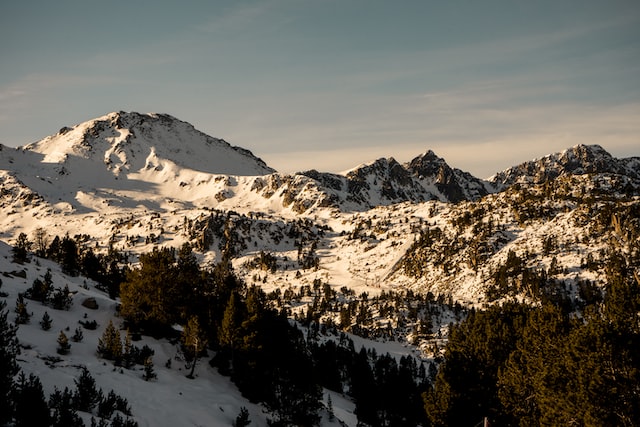On the Iberian Peninsula, east of the Pyrenees Mountains is the tiny European nation of Andorra. With a population of 77,281 and an area of 181 square miles, Andorra is the world’s 11th least populous country and the sixth-smallest country in Europe by area. It is officially known as the Principality of Andorra. At 3,356 feet above sea level, Andorra la Vella, the capital of Andorra, is the highest city in all of Europe. Although Catalan is the official language of the nation, Andorra also has a large Portuguese, Spanish, and French-speaking population. Tourism is the backbone of the nation’s economy, bringing in about 10.2 million visitors annually and making up about 80% of Andorra’s GDP.

Below are some of the leading industries:
Agriculture
Although Andorra has comparatively few natural resources, some of Europe’s largest health spa resorts have been built thanks to hot springs, mineral water, lead, timber, iron ore, and hot spring potential. Its hilly terrain makes cultivation difficult. In actuality, just 2% of Andorra’s land can be used for agriculture. Nevertheless, the Valira Valley is a place where cattle and sheep are raised, as well as where crops like barley, wheat, rye, and oats are grown. The majority of cropland is used for the production of hay, and tiny vegetable and tobacco fields are watered by irrigation from local rivers. The most profitable crop, tobacco, takes up 8% of all cropland. Eastern tobacco and Andorran tobacco are two cultivated tobacco varieties. There are 9,000 sheep and 1,100 cattle in the nation, and meat output has slightly increased in recent years. To satisfy domestic demand, Andorra must import the majority of its food.
Manufacturing
The main export-oriented products made in Andorra are furniture, cigarettes, and cigars. Because Andorra is a tax haven, cigarettes are much cheaper there than in France or Spain. As a result, it has become very difficult to smuggle cigarettes out of the nation, notably during the 1990s when 15% of all cigarettes in Spain were smuggled. The EU and its member states put great diplomatic and political pressure on the Andorran administration as a result of the problem. As a result, the market share of illegal cigarettes in Spain fell to 12% in 1997 and 5% in 1999. The Andorran border was sealed, and patrols were set up in the hills and valleys as additional measures to lessen smuggling.
Services, trade, and tourism
The major portion of Andorra’s economy is the services sector. More specifically, tourism contributes more than 80% of the GDP. Year-round, tourists, particularly those from Spain and France, swarm to the country to shop for items like watches, cigarettes, electronics, and jewelry. In the winter, visitors come to the nation to ski at numerous locations including Soldeu. Other tourist attractions are the numerous glacial lakes that dot Andorra’s alpine scenery. Lake Juclar, the largest glacial lake, has a surface size of 28 hectares and draws tens of thousands of people who wish to see its pristine environment. The nation has the greatest tourist per capita ratio in the world with more than 10 million foreign tourists annually.
Additionally, Andorra has 400 restaurants and 270 hotels, which together employ a sizeable share of the country’s workforce. Due to its reputation as a tax haven, the nation also serves as a hub for banking and financial services. The majority of Andorra’s consumer goods are imported, particularly from France and Spain. For instance, 21% of items imported in 2006 came from France and 53% from Spain. In contrast to the projected $1.9 billion in total products purchased during that year, Andorra exported items and services worth $148.7 million. 60% of Andorra’s exports went to Spain in 2006, while 17% went to France, making Spain the nation’s top export destination.
Economic prospects
The rate of Andorra’s economic growth has always been unpredictable. But Andorra has recently witnessed consistent growth, with an estimated 3.5% annual growth rate in 2005. The Andorran government is attempting to further integrate with the European Union to maintain its economic stability and growth. The country’s fiscal position has also significantly improved, as evidenced by Standard & Poor’s raised its rating from “AA-” to “AA.” Financial support for organizations that build tourist facilities within the nation is one of the incentives that have been introduced to increase the economy. Due to the country’s lax tax regulations and bank secrecy restrictions, Andorran banks also draw a sizable number of overseas investors and depositors.







